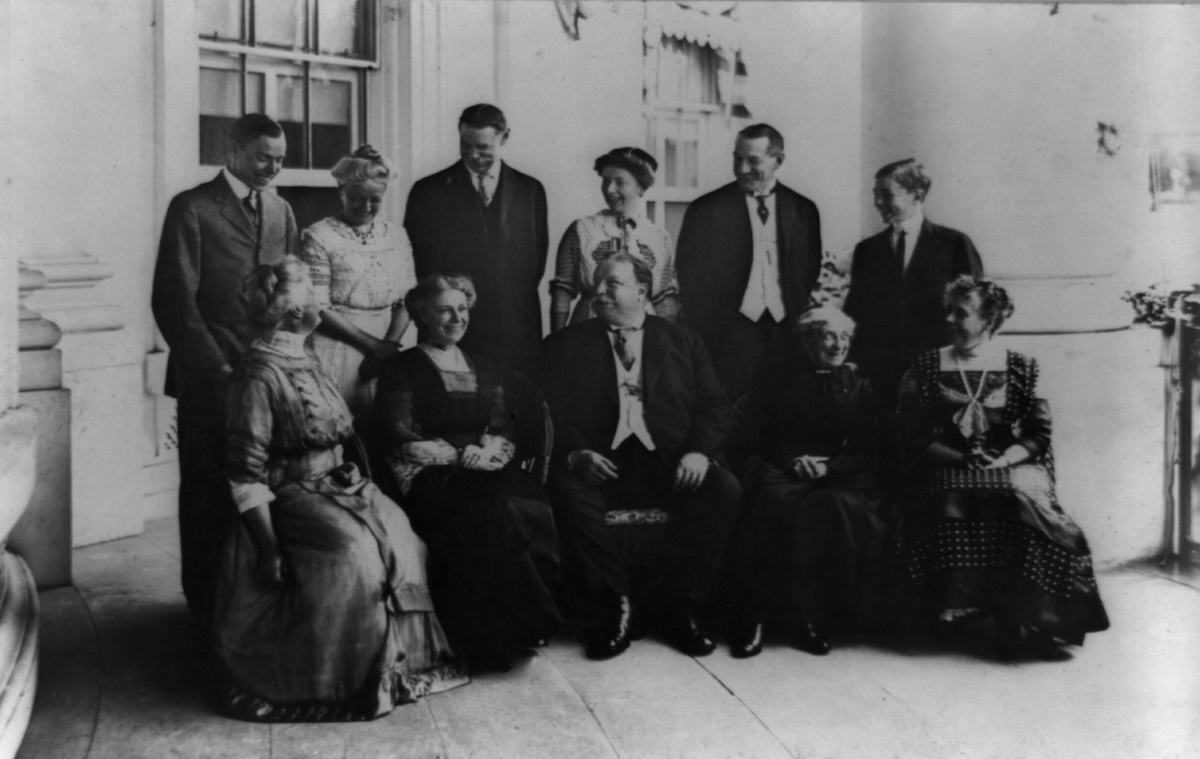‘The Tafts’ by George W. Liebmann review
In The Tafts, George W. Liebmann celebrates an American political dynasty dedicated to public service. Why are they often overlooked?

In The Tafts, veteran Baltimore lawyer George W. Liebmann provides an account of five generations of the Ohio-based dynasty of Republicans, highly accomplished but less prone to self-advertisement than some of the United States’ better-known political families. Louise Taft Semple, President Taft’s niece, bequeathed her fortune for the promotion of classical studies at the University of Cincinnati, which consequently boasts one of America’s most prestigious Classics departments and one of the world’s biggest Classics libraries. The university itself was rescued by the first of Liebmann’s subjects, lawyer and judge Alphonso Taft (1810-91), who successfully defended the will of the founder, Charles McMicken, which financed its establishment. McMicken was a slave-owner. In 2022 the university removed his name from all its buildings and spaces named after its benefactor because, it argued, not to do so ‘betrays academic values’. What about historical truth?
As a judge of the Ohio Supreme Court, Alphonso Taft dissented in a ruling that allowed the King James Bible to be read in public schools. Alphonso’s insistence on a duty ‘to keep religious partisanship out of the public schools’ was cited in 1963 by the US Supreme Court, which held Bible reading and the recital of the Lord’s Prayer in public schools to be unconstitutional. His principled dissent is said to have cost him three governorships. One of Alphonso’s lawyer sons, Henry Waters Taft, opposed actions for alienation of affections, ‘criminal conversation’ (i.e. adultery) and breach of promise of marriage – as did his British contemporary, Mr Justice McCardie – as degrading and instruments of blackmail. The highly cultivated Taft’s Opinions, Literary or Otherwise (1934) repays reading.
Liebmann devotes most attention to the best known of Alphonso’s sons, William Howard Taft (1857-1930) and his eldest son Robert A. Taft (1889-1953). By all accounts the most genial incumbent of the White House, with a benevolence matching his legendary girth (at its widest over 28 stone), W.H. Taft was president from 1909 to 1913 and (after six years as a professor of constitutional law at Yale) chief justice of the Supreme Court from 1921 until his death in 1930. The only president to occupy both offices, he considered the second by far the more enviable. Liebmann approves his rulings, especially his contribution to labour and anti-trust law. He was a deft manager of his sometimes difficult colleagues and lobbied for the commissioning of the stately Supreme Court building subsequently erected on Capitol Hill.
William Howard’s son, Senator Robert A. Taft, is best known for the Taft-Hartley Act of 1947, enacted after a damaging wave of strikes to restrain unionised activity, banning the closed shop, secondary picketing and the political levy. Congress passed the Act despite the veto of President Harry S. Truman, who condemned it as an ‘intrusion on free speech’. Taft’s wife, Martha Wheaton Bowers, punned that ‘to err is Truman’.
Both William and Robert had qualms about US foreign policy. William disbelieved in overseas expansion, though he proved a relatively enlightened governor of the newly annexed Philippines when President William McKinley appointed him to that post in 1901. He preferred ‘dollar diplomacy’ to the gunboat variety and deplored Woodrow Wilson’s botched interventions in Mexico. Like many other Republicans, Taft favoured a march to Berlin in 1918 to put an end to German militarism, and to Moscow to extirpate Bolshevism. He deplored the Republican partisanship that scuttled American support for the League of Nations.
Robert was foremost in repealing the isolationist embargo legislation, thus permitting Britain at war to purchase arms from the US. He was the only notable public figure to oppose the internment of Japanese Americans after the attack on Pearl Harbor in 1941. A supporter of the Balfour Declaration, he favoured the partition of Palestine and a small Jewish state and held that no peaceful solution in the Middle East was possible ‘until this [Arab] refugee problem is settled’.
Liebmann’s treatment of a dense and miscellaneous array of case-law assumes a knowledge of American jurisprudence outside the range of non-specialists, including your reviewer. The book is attractively presented, with good photos of its subjects. This is not a collection of Plutarchian ‘lives’, but a work, Liebmann tells us, of intellectual, not political history. This seems slightly odd given his focus on how successive Tafts reacted to political developments. Of the 36 lives recounted, some of the shorter entries pass before the reader like Banquo’s ghost.
The golden thread running through the Taft heritage was academic excellence, hard work, philanthropy and an ethic of public service rather than self-promotion. Much of this was acquired during a liberal (and classical) education, often at the prestigious Connecticut private school, the Taft School, founded in 1893 by W.H. Taft’s brother, Horace, who was also its first headmaster, followed by Yale and law school. The motto of the Taft School is ‘Non ut sibi ministretur, sed ut ministret’ (‘not to be served but to serve’).
In 1920 H.L. Mencken wrote of George Washington that he was ‘the first and perhaps the last American gentleman’. This is to forget the Tafts. Above all, the Tafts had integrity. Liebmann quotes a comment by the liberal journalist Richard Rovere on Robert Taft: ‘Alongside the papier mâché statesmen of the period, almost a figure of granite.’ Their integrity reflected the Jeffersonian view of education: ‘to render citizens immune from the blandishments of demagogues’. Liebmann implicitly and explicitly points the moral and intellectual contrast with today’s lightweights.
-
The Tafts
George W. Liebmann
Twelve Tables Press, 422pp, £30
Antony Lentin is a Senior Member of Wolfson College, Cambridge.